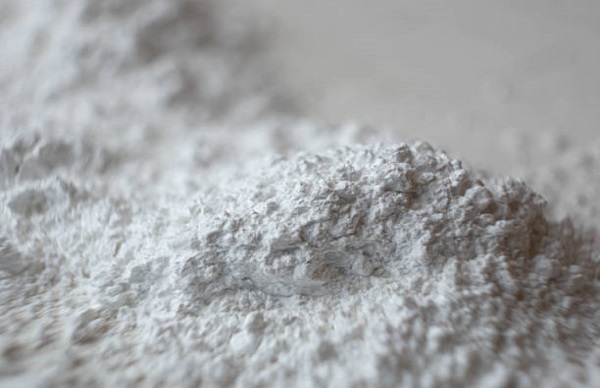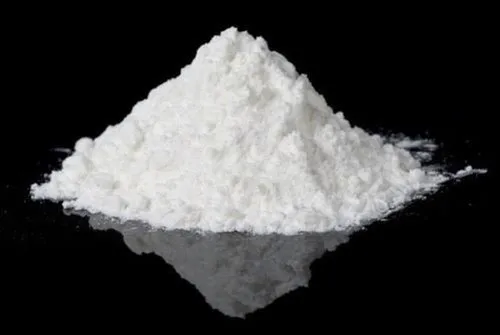
Where to get Calcium Carbonate
October 2, 2024
Various Interesting Facts About Soapstone Powder
October 7, 2024Calcium Carbonate Powder is a widely occurring compound found naturally in rocks, shells of marine organisms, pearls, and eggshells. It is a key component in construction materials such as limestone and marble and is used in various industries, from pharmaceuticals to manufacturing. However, calcium carbonate undergoes a significant transformation when heated strongly, which is an essential process in several industrial applications. This process is called thermal decomposition, and it leads to the formation of calcium oxide (CaO) and carbon dioxide (CO₂).
In this article, we will explore in detail what happens when calcium carbonate is heated strongly, the chemical reactions involved, the factors affecting the decomposition process, and its importance in various industries.
Step-by-Step Breakdown of the Reaction
Energy Absorption
When calcium carbonate is heated, energy is absorbed by the bonds holding the molecule together. This energy breaks the chemical bonds, initiating the decomposition process.
Formation of Calcium Oxide
As the carbonate ions (CO₃²⁻) are heated, they lose a molecule of carbon dioxide, leaving behind calcium oxide. Calcium oxide is a white, solid substance commonly referred to as quicklime or burnt lime.
Release of Carbon Dioxide
The carbon dioxide gas released during this process escapes into the atmosphere, leaving the solid calcium oxide behind.
Factors Affecting the Decomposition of Calcium Carbonate
Several factors influence the decomposition of calcium carbonate when it is heated strongly. These factors include temperature, pressure, and the presence of impurities.
Temperature
Temperature is the most critical factor in the decomposition process. Calcium carbonate typically begins to decompose at temperatures around 825°C. However, higher temperatures can accelerate the decomposition process, ensuring complete breakdown of the compound into calcium oxide and carbon dioxide.
Pressure
In industrial processes, the pressure can influence the decomposition of calcium carbonate. Under normal atmospheric pressure, the reaction proceeds as expected. However, if the pressure of carbon dioxide is increased, it can shift the equilibrium of the reaction, slowing down the decomposition process or requiring higher temperatures to drive the reaction forward.
Purity of the Calcium Carbonate
Impurities present in calcium carbonate can affect the decomposition process. In nature, calcium carbonate often contains impurities such as magnesium carbonate, silica, or iron oxide. These impurities may alter the temperature at which decomposition begins or the speed at which it occurs.
Applications of Heating Calcium Carbonate
The thermal decomposition of calcium carbonate into calcium oxide and carbon dioxide has significant industrial applications. These applications span various sectors, including construction, manufacturing, and environmental management.
1. Cement and Lime Production
The heating of calcium carbonate is a critical step in cement and lime production. In the manufacturing of cement, calcium carbonate (often in the form of limestone) is heated in a kiln at high temperatures. This process produces calcium oxide (quicklime), which is then mixed with other materials to form clinker. The clinker is then ground into a fine powder to make cement, which is a key ingredient in concrete and mortar.
In the lime industry, heating calcium carbonate produces quicklime, which is used in various construction applications such as soil stabilization, water treatment, and as a binding agent in mortar.
2. Steel Manufacturing
In the steel industry, quicklime is used as a flux in the smelting process. When added to a blast furnace, quicklime reacts with impurities in the molten iron, such as silica and alumina, to form slag. The slag can then be removed, leaving behind purer molten steel. This makes lime a crucial material in steel production, improving the quality of the final product.
3. Environmental Applications
Calcium oxide, produced by heating calcium carbonate, is used in several environmental applications. It plays a role in controlling air pollution by absorbing sulfur dioxide (SO₂) from industrial emissions, thereby reducing the formation of acid rain. Additionally, calcium oxide is used in water treatment plants to soften water by removing excess minerals such as magnesium and calcium.
Conclusion
When calcium carbonate is heated strongly, it undergoes a thermal decomposition reaction that results in the production of calcium oxide and carbon dioxide. This reaction plays a vital role in numerous industries, including cement and lime production, steel manufacturing, and environmental management. Understanding the conditions required for the decomposition of calcium carbonate allows industries to harness its benefits and produce high-quality products that are essential for modern-day applications. Whether you're building roads, treating water, or manufacturing glass, the heating of calcium carbonate is a fundamental process that impacts many facets of everyday life.
Sudarshan Group is a trusted name in providing top-quality calcium carbonate and other essential minerals to industries, ensuring the highest standards for your production needs.



